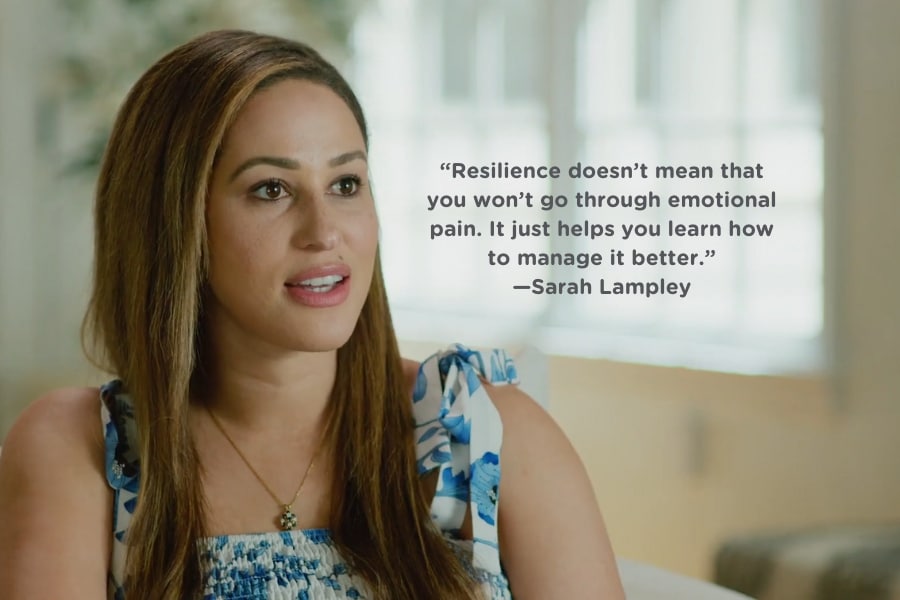Stories of Resilience: The Lampley Family
We're sharing the Lampley family’s story as part of our Raising Resilience initiative, which equips caregivers with tools to teach kids how to cope with challenges, manage stress and ultimately make healthy choices throughout their lives.
The Lampley family's story of resilience
Atlanta-based Sarah Lampley and her husband Lewis have 3 sons, and they always felt that they wanted another baby. After 4 years of struggling with infertility, Sarah got pregnant in 2021 with a baby boy, Legend. But at 38 weeks, Sarah experienced a placental abruption, and Legend was delivered stillborn. Through the devastating loss of Legend, the Lampley family has redefined what it means to be resilient—that resilience doesn’t mean you won’t go through emotional pain, but that it helps you manage it better.

Teaching kids how to recognize and express their feelings is an important step in helping them build resilience (the ability to handle life’s ups and downs). Through their grief, Sarah and Lewis have helped their older boys build resilience by encouraging them to feel whatever they feel in the moment, and to talk to somebody about how they’re feeling—whether it’s their parents, brothers or friends. These regular feelings check-ins are simple and happen in everyday moments, like family bike rides and hikes. Sarah and Lewis have also learned to be positive role models by sharing what they feel with their kids, which has helped the whole family to be more open about their feelings.
Grief is a journey and looks different for everyone, but for the Lampleys, talking openly about feelings—for the kids and grown-ups alike—has helped them all cope.
Building resilience through emotional expression
Kids aren’t born knowing how to identify, express and manage (or cope with) their feelings. It’s something they need to learn how to do and practice over time. Here are a few simple ways you can help:
- Build their feelings vocabulary by encouraging your child to use specific feelings words. Instead of “mad,” help them find out what lies underneath the anger. Are they disappointed, hurt or embarrassed?
- Model how to share feelings. Your child looks to you as an example at every age. When appropriate, share what you’re feeling with your child to show them that feelings are normal and OK to talk about.
- Provide different options for expression. Sometimes kids aren’t ready to talk, and that’s OK. Encourage them to use other forms of expression, such as journaling or creating art.
- Teach and practice coping skills. Whether it’s being active, listening to music or deep breathing, practicing healthy coping skills regularly can help reduce (and sometimes prevent) stress.
If you’re already doing some of these things, that’s great. If not, it’s never too late to start. To learn more about building resilience in your child, check out our Raising Resilience initiative.



